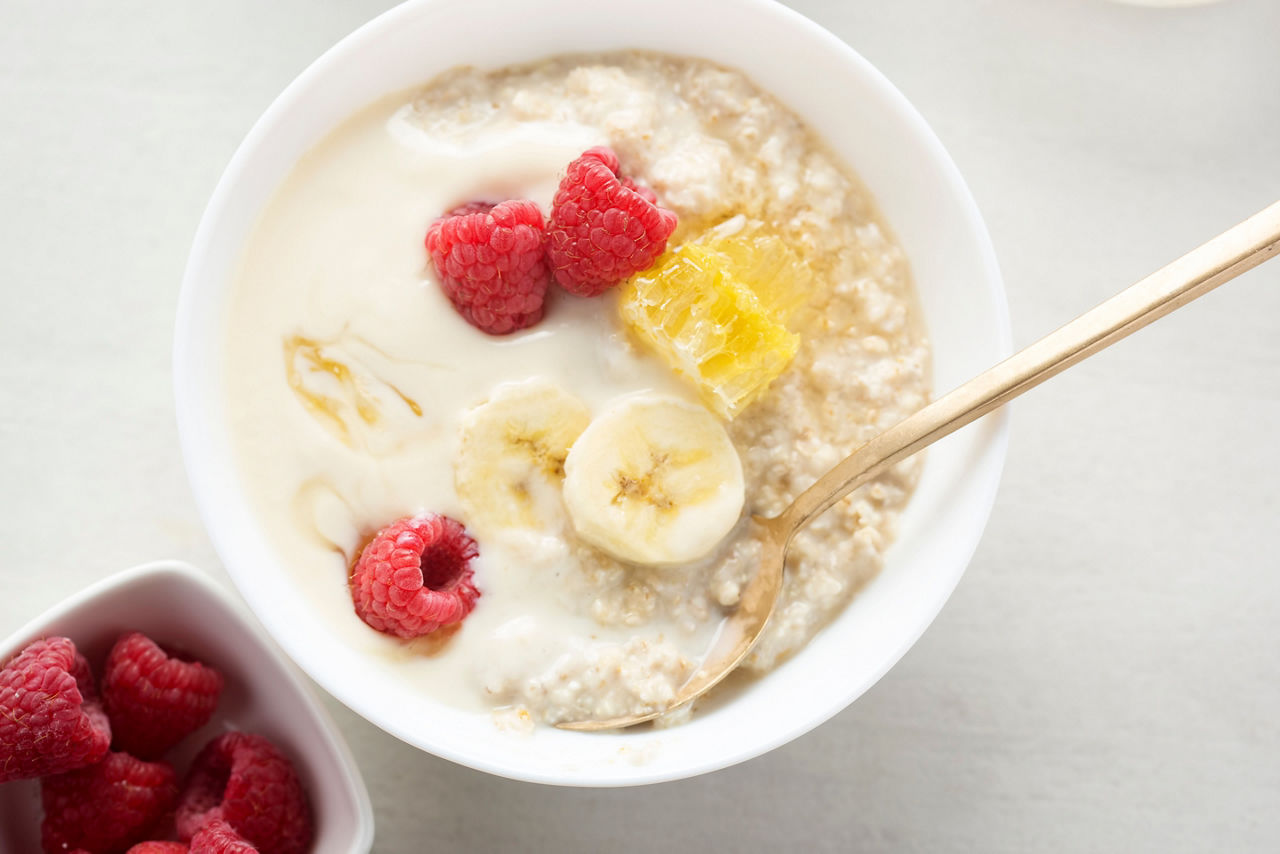Breastmilk is the best for babies. The World Health Organisation recommends exclusive breastfeeding for the first six months of life. Unnecessary introduction of bottle feeding or other food and drinks will have a negative impact on breastfeeding. After six months of age, infants should receive age-appropriate foods while breastfeeding continues for up to two years of age or beyond. Consult your doctor before deciding to use infant formula or if you have difficulty breastfeeding.
- Week 1
- Week 2
- Week 3
- Week 4
- Week 5
- Week 6
- Week 7
- Week 8
- Week 9
- Week 10
- Week 11
- Week 12
- Week 13
- Week 14
- Week 15
- Week 16
- Week 17
- Week 18
- Week 19
- Week 20
- Week 21
- Week 22
- Week 23
- Week 24
- Week 25
- Week 26
- Week 27
- Week 28
- Week 29
- Week 30
- Week 31
- Week 32
- Week 33
- Week 34
- Week 35
- Week 36
- Week 37
- Week 38
- Week 39
- Week 40
Dairy Foods and Pregnancy
It’s 9pm and you’re heading to the fridge to grab a snack. Pick the milk! Or better yet, yoghurt! As sources of protein, calcium and Vitamin D, dairy products can contribute to your baby’s heart health, teeth, bones and developing nervous system. Read on for more.
Becoming a mother is a sea of change, dividing your life into a clearly defined “before” and “after”! The one thing that shouldn’t change though, is a healthy diet. You may be aware of the benefits of dairy foods during pregnancy: Protein helps to build healthy tissue1; fat is essential for energy and growth2; and calcium3 and Vitamin D4 both contribute to your baby’s normal bone development.
What’s in a Dairy Serving?
Dairy is huge in Singapore! From Milo to bubble tea, we Singaporeans love our daily dairy fix. Consuming 2 to 3 servings of dairy a day can help us meet our daily calcium and protein requirements.
Plan to include low-fat dairy varieties in your diet, such as low-fat yogurt, reduced-salt cheese; and use low-fat spreads instead of butter. If you are flavouring your food with cheese, opt for a stronger-tasting cheese such as mature cheddar so that you don't need as much of it.
The following table shows nutritional value of some common dairy products5:
| Dairy | Protein per 100g | Calcium per 100g | Dairy (average portion sizes) | Protein per portion | Calcium per portion |
|---|---|---|---|---|---|
| Whole Milk | 3.3g | 118 | 250ml | 8.25g | 295 |
| Semi-skimmed milk | 3.4g | 120 | 250ml | 8.5g | 300 |
| Skimmed milk | 3.4g | 122 | 250ml | 8.5g | 305 |
| Cheddar cheese | 25.4g | 739 | 30g | 7.26g | 221.7 |
| Half-fat cheddar | 32.7g | 840 | 30g | 9.81g | 252 |
| Cottage cheese | 12.6g | 127 | 90g | 11.34g | 114.3 |
| Whole milk yogurt | 5.7g | 200 | 150ml | 8.55g | 300 |
| Low fat yogurt (plain) | 4.8g | 162 | 150ml | 7.2g | 243 |
Keep in mind that some types of cheese should be avoided during pregnancy altogether, such as soft blue cheeses9. These can develop higher levels of listeria, which is a bacteria that carries significant risks during pregnancy10. It’s also important to make sure any milk and dairy foods you consume are pasteurised9.
Dairy-free Diets
If you're lactose-intolerant or follow a vegan diet, substitute dairy with other food sources to get the nutrients that dairy products would otherwise provide10. Protein can be obtained from meat, fish and pulses, while soy products and dark green leafy vegetables are recommended for an adequate calcium intake. For Vitamin D, regular exposure to sunlight and taking the recommended 15mcg per day as a supplement will help you meet your needs11.
Good sources of dairy to add to your shopping list include:
• Milk
• Yogurt
• Cheese

Connect with our team of experts
We provide advice and support for you on your parenthood journey




